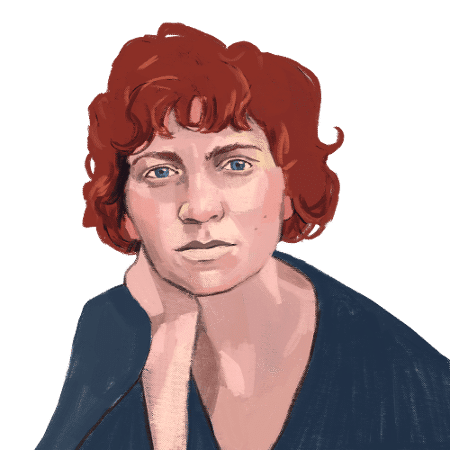Natalie Unterstil was 23 when she first felt the impact of climate issues. It was 2007, and in the middle of Alto Rio Negro, on Brazil’s borders with Colombia and Venezuela, along with 22 indigenous peoples and an impressive biodiversity, he heard from his boss the bad news that the IPCC negotiations had brought: the world would end in The year 2050, according to science, if human action on planet Earth does not change its course. “My head exploded,” she says, a good metaphor for feeling helpless that immediately led to the question, “What am I going to do?”
Since then, the same question has guided her steps — and it’s no exaggeration to say that Natalie’s path is intertwined with Brazil’s on climate issues, at least in the Brazil she cares about.
From Alto Rio Negro, where she worked for seven years, the scientist went to Norway, where she began to learn from activists, negotiators and various movements what to do with regard to climate policy. She worked with Rainforest Foundation Norway to build the Amazon Fund, and has since established herself as a reference, illustrating her forest experience with public administration – Natalie has a degree from Fundação Getúlio Vargas and a master’s degree from John F. School of Government, Harvard University. But what’s most impressive isn’t the nicknames: she sailed for Boston, and lived on the boat the whole time there.
When he returned to Brazil, he began working in federal and state governments, implementing public policies and what is usually called the most ambitious climate change adaptation program implemented in the country, Brazil 2040, which had been set up under the Dilma government.
Natalie is now a member of the Green Climate Fund Accreditation Committee and is behind the creation of the Talanoa Institute, which she chairs. The idea for the name came from a speech delivered by Frank Bainimarama, Prime Minister of Fiji, to COP 23. Although the islands are in the front rows of poor climate, thinking about the end of the world, for Frank, is not very practical: it is necessary to imagine and build other results. He then proposed “Talanoas” as a method of collective decision-making at the United Nations: the term means something like “sit for difficult conversations and only rise to a decision”.
The “spirit of Talanoa” permeated the negotiations and placed the responsibility of making the 2015 Paris Agreement a reality in the bosom of every country – an agreement that, to Natalie, seemed like a revival of the hope she saw fading back in 2009, at COP 15. At the time, he wrote a text comparing Sign global agreement with a scene from Samuel Beckett’s “Waiting for Godot.”
Today, his vision is very different, mainly due to his realization that changing large structures will not only solve the climate crisis. “We have tremendous strength,” Natalie says. “Only people can move systems, and our choices have that potential.” As an example, he cites evidence from the Intergovernmental Panel on Climate Change (IPCC) that changing transportation and diet, with fewer cars and less animal protein consumption, can have more than a significant impact: these situations alone can reduce carbon emissions. by 40%, the great climate villain, by 2050. The pronunciation of actions also helps: “When we complain on social media about the restaurant serving plastic napkins, or the oil company asking us to calculate our carbon footprint, being themselves the emitter, we imply that we will not We accept it anymore.”
Natalie, herself, also speaks: in addition to writing articles, conversing with experts and collaborating with audio notation From Piauí’s magazine “The Earth is Round (Really)”, she talks to residents via networks, inviting them to “solve the climate crisis in a generation: ours.”
Natalie Unterstil is not only impressive but essential. After all, it was unreasonable to say that we had no time to waste.
Natalia Timmerman Writer and psychiatrist. A PhD student at the University of the South Pacific, a columnist at Universa and the author of the books “Cobo Fazio” (However), “Rashaduras” (Quilonho) and “Desteros: A History of a Prison Hospital” (Elephant). Born in São Paulo (SP).
We carefully and independently select each product and check prices on the date of publication (ie, they may vary!). When you buy through our link, we earn a commission, but you don’t pay extra for it.

“Hardcore beer fanatic. Falls down a lot. Professional coffee fan. Music ninja.”







More Stories
The law allows children and adolescents to visit parents in the hospital.
Scientists pave the way for the emergence of a new element in the periodic table | World and Science
Can dengue cause hair loss? Expert explains how the disease affects hair